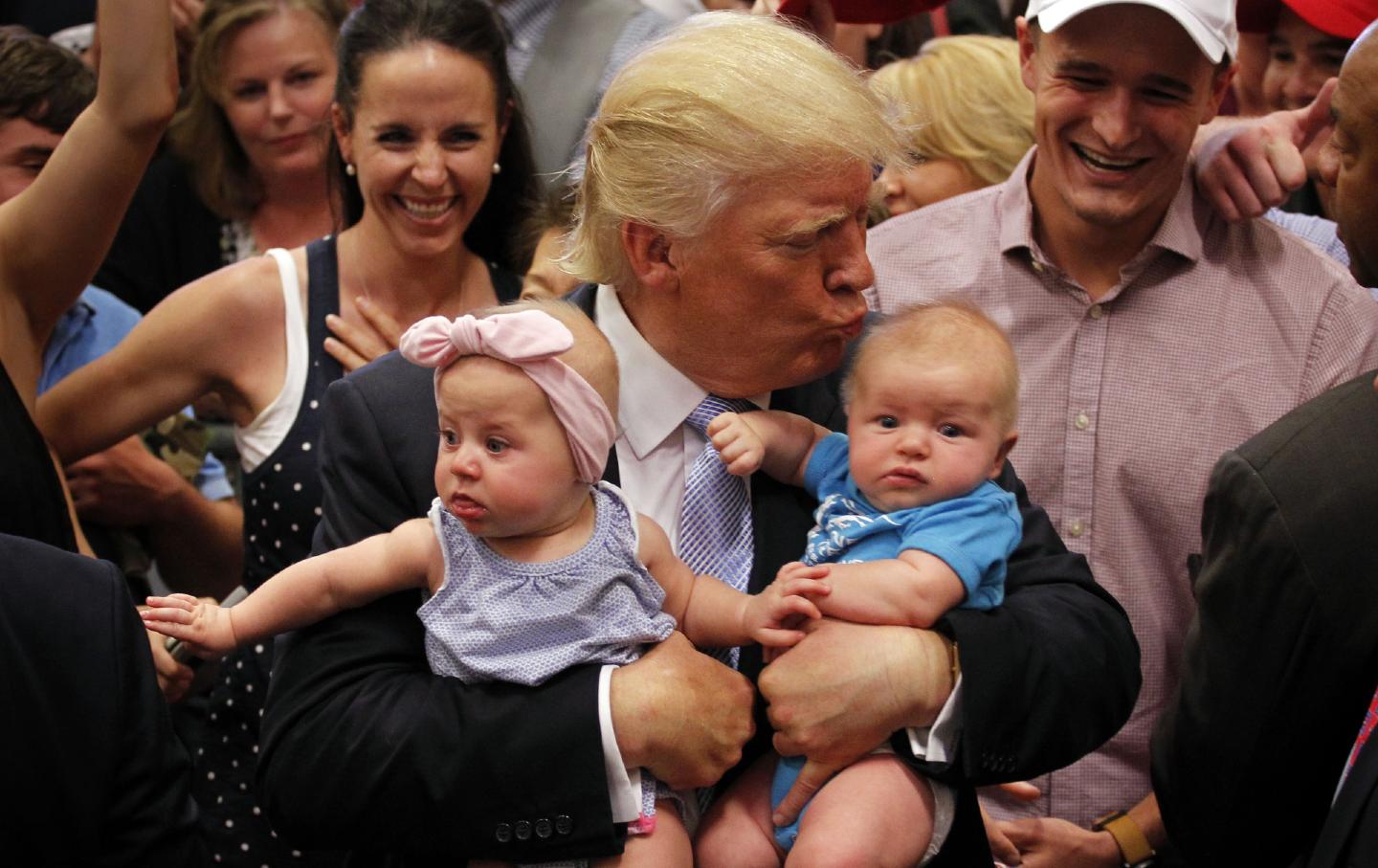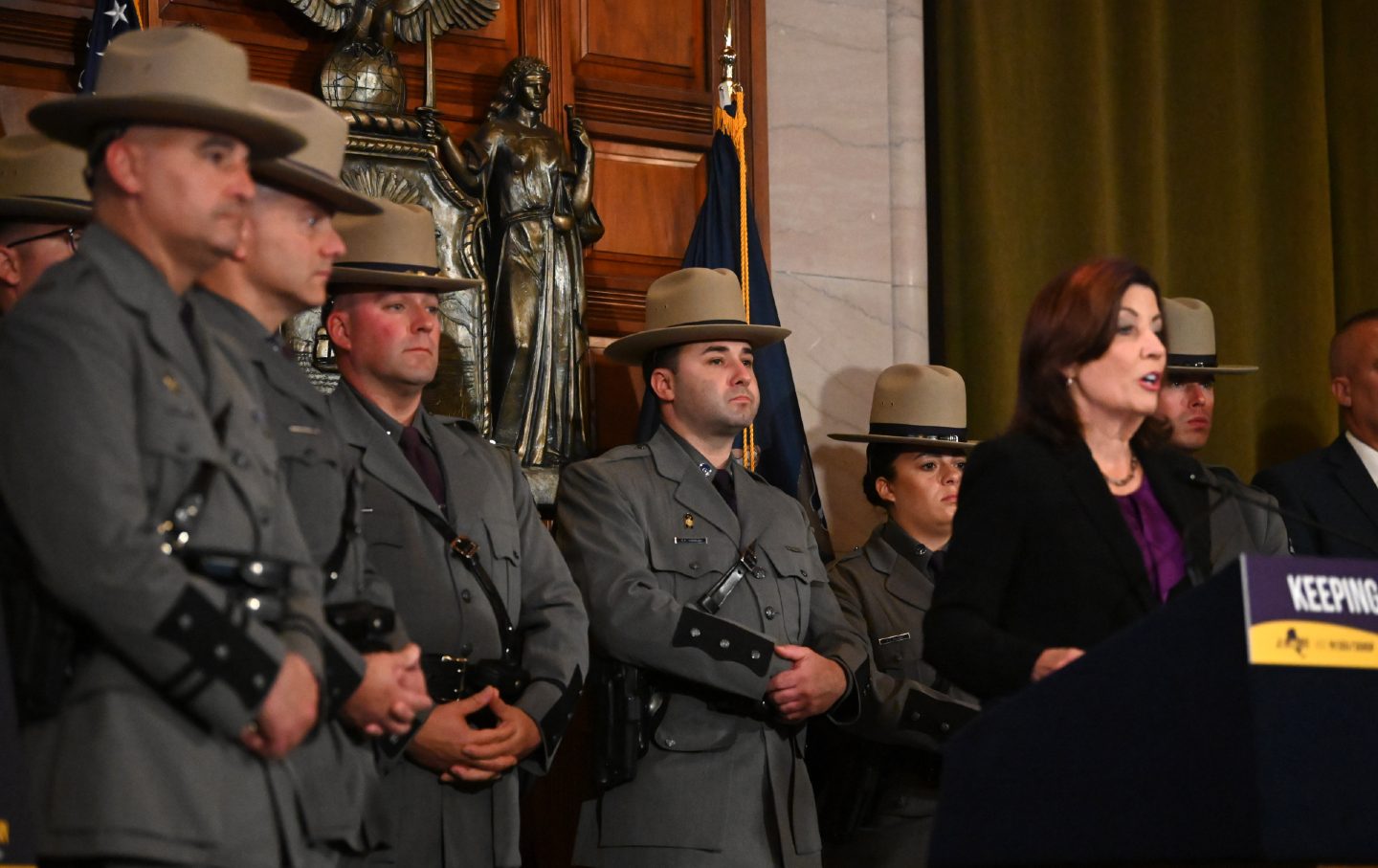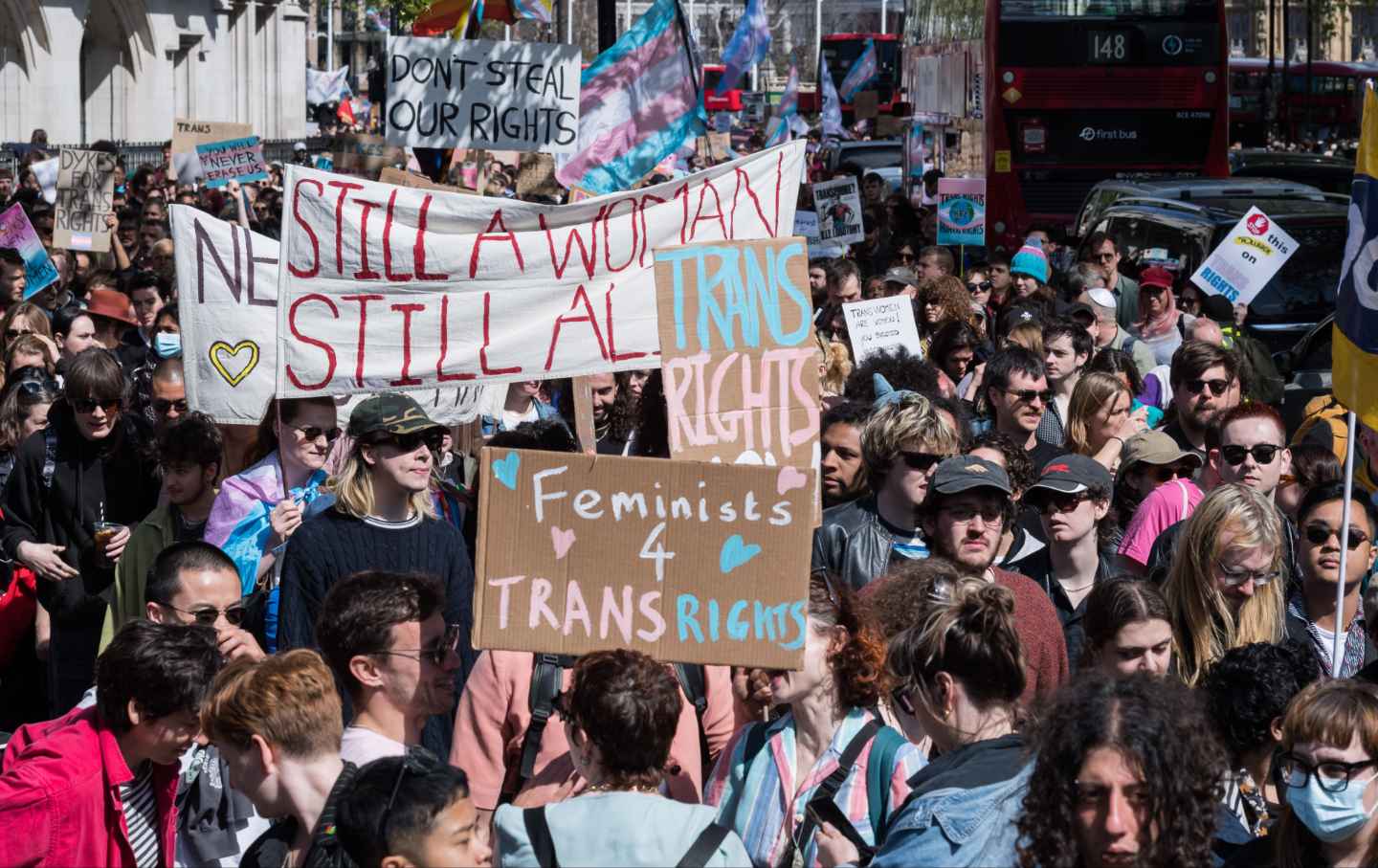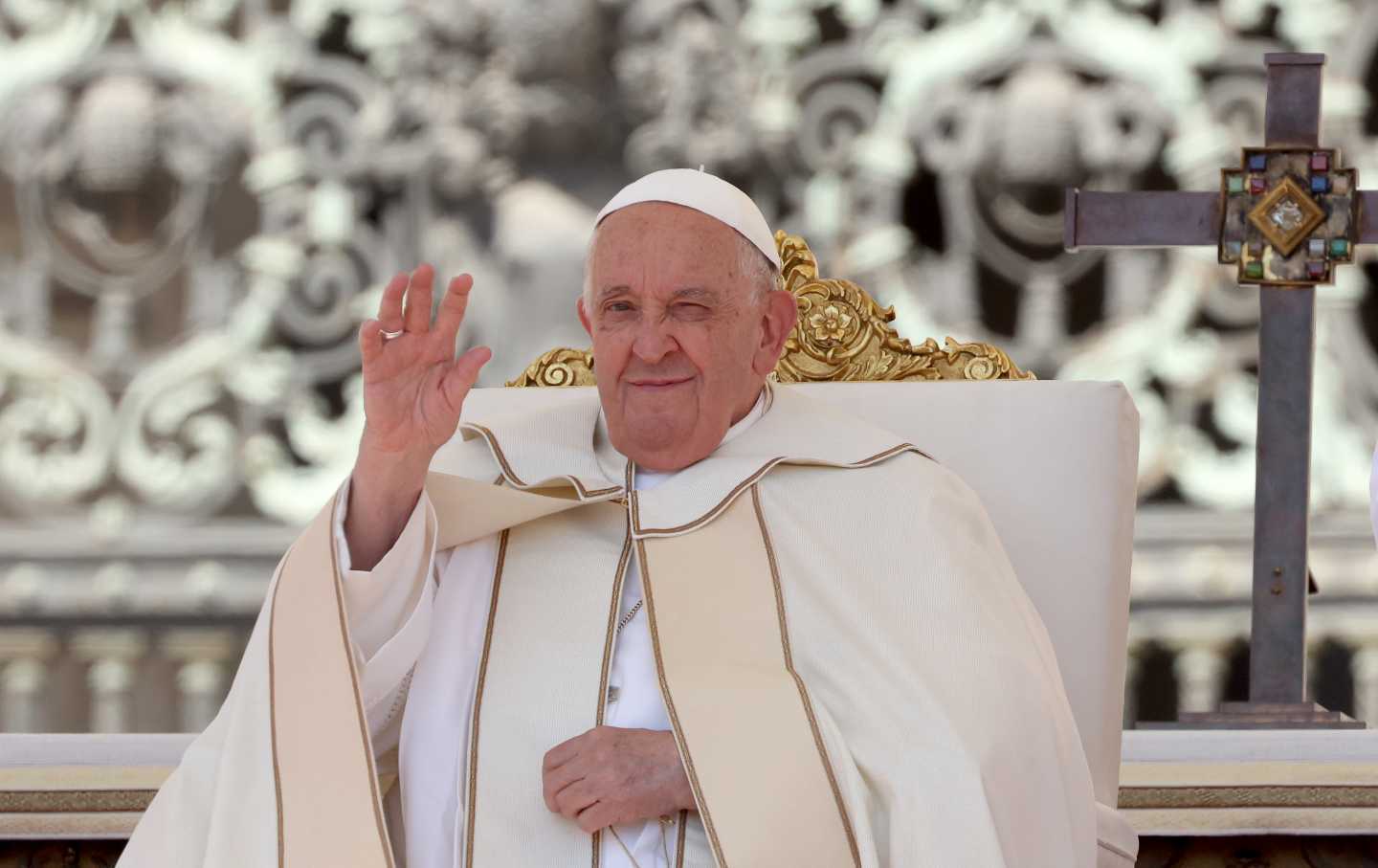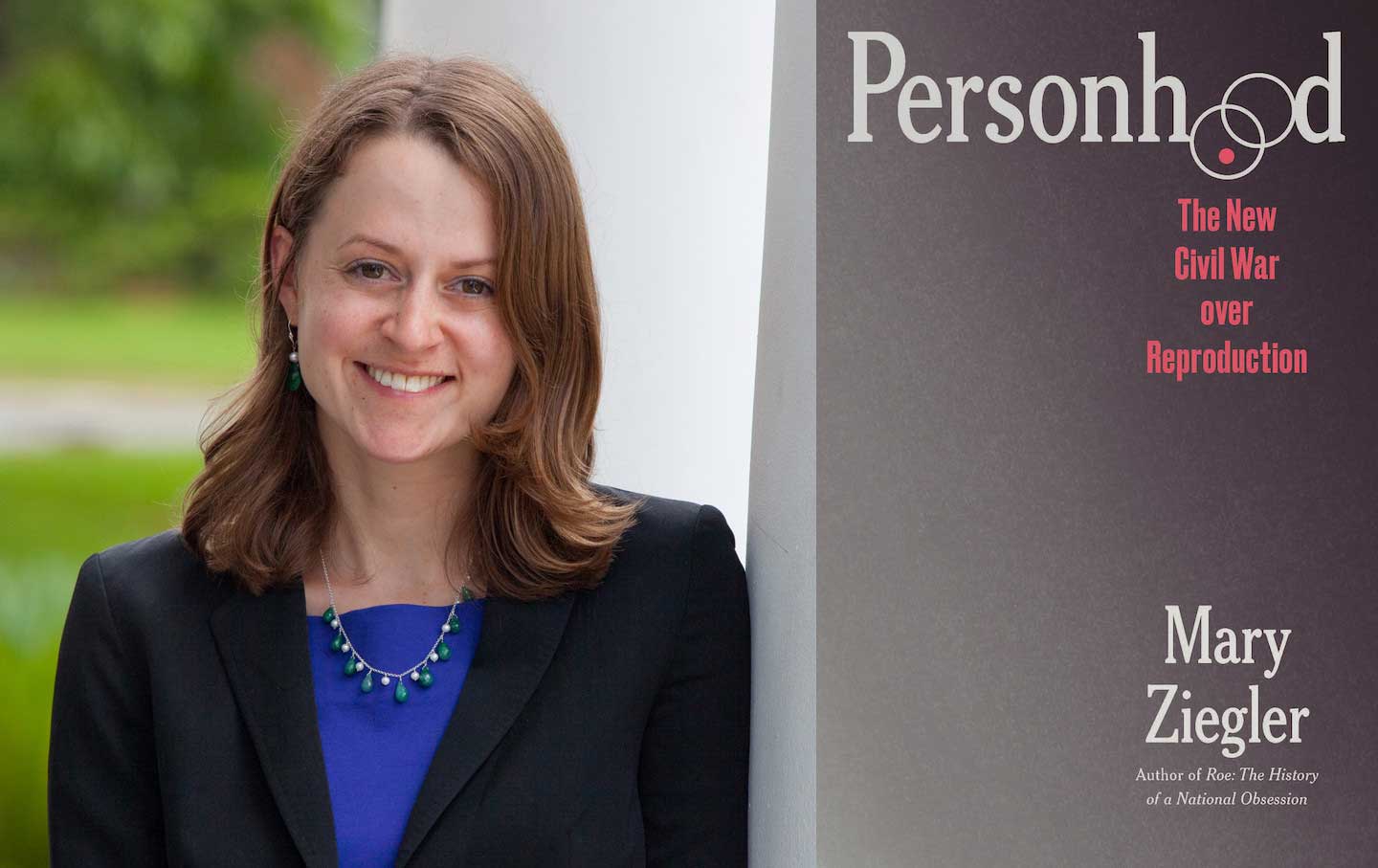Some Inconvenient Truths About Antisemitism and the Left
By ceding the space on antisemitism—responding when we are accused of it, but not taking up the fight against it as our cause—we’ve created a strategic opportunity for the right.
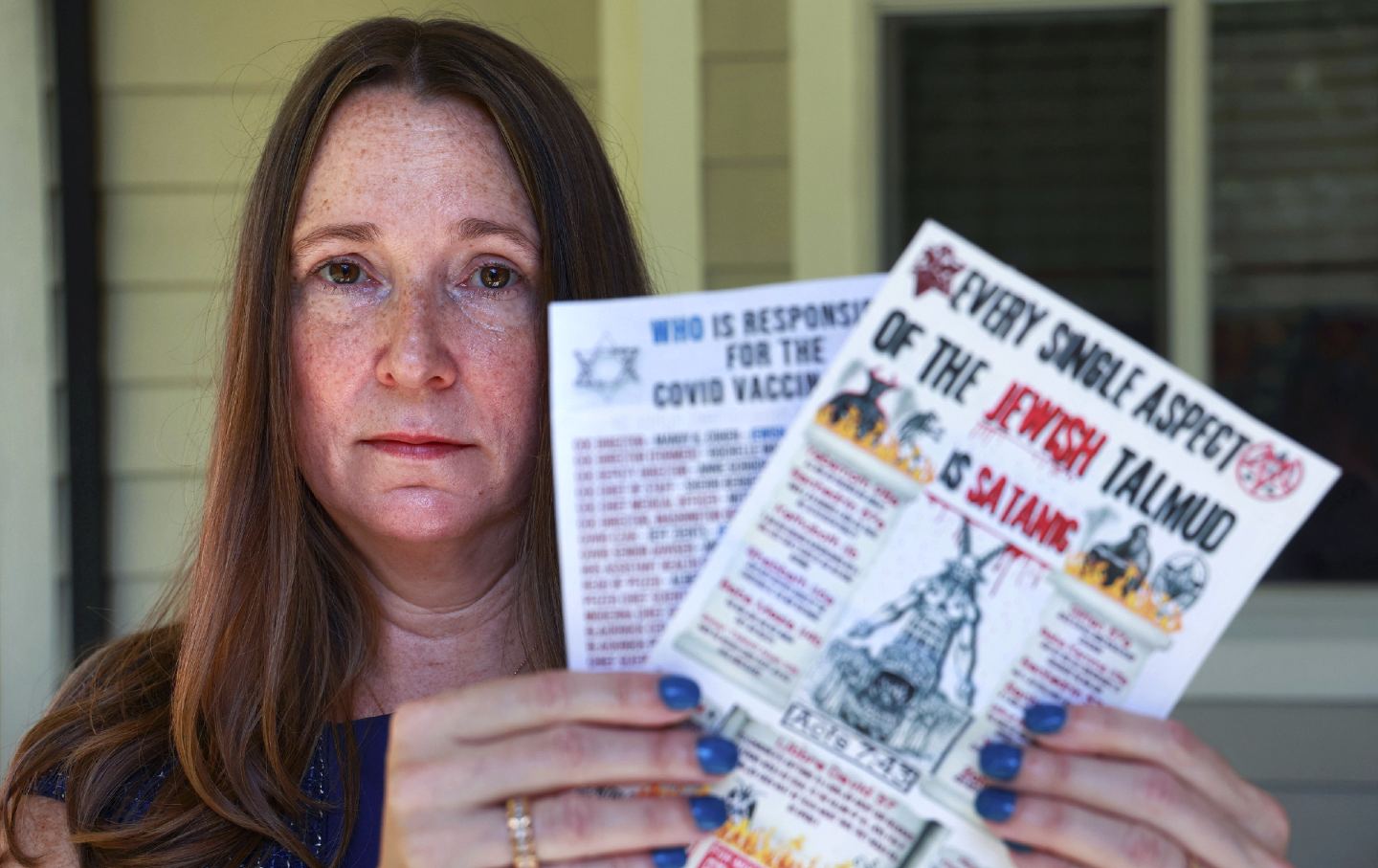
In early December 2023, a video about antisemitism went viral. The short clip came from a US House Committee on Education and the Workforce hearing titled “Holding Campus Leaders Accountable and Confronting Antisemitism.” This hearing took place amid alarm over Jewish students’ being harassed and attacked on American campuses. It also occurred in the context of a global spate of antisemitism: a Jewish woman stabbed in France, shootings at Jewish day schools in Canada, desecrations of Jewish buildings with hate-filled graffiti across Europe, protesters screaming “fuck the Jews” in Australia, a full-blown antisemitic riot in Russia’s Dagestan.
It also followed the brutal rampage by Hamas on Israeli soil on October 7, in which some 1,200 people—mostly Israeli civilians—were killed and over 200 taken hostage. Israel immediately launched an unprecedented bombardment of the Gaza Strip. By the time that viral clip pinged onto my phone, tens of thousands of Palestinians, mostly women and children, had been killed or injured; the entire population of Gaza was being terrorized while the Strip was being made uninhabitable. The scale of Israel’s military response was so ferocious that in January 2024 the International Court of Justice would find there was plausible evidence that Israel was violating the genocide convention in Gaza.
But in early December, at the House Committee hearing, the presidents of three of America’s leading universities—Harvard, the University of Pennsylvania, and the Massachusetts Institute of Technology—were each asked variations of an apparently simple question: “Does calling for the genocide of Jews violate university rules or codes of conduct, yes or no?” Astoundingly, none of them answered with a simple “yes.” Instead, they each resorted to evasive legalese, hesitant gestures towards “context” and seemingly dispassionate distinctions. It was horrible to watch. It seemed to confirm that Jews could not count on anyone to even recognize antisemitism—let alone condemn it—at a time when anti-Jewish hatred was spiraling. And so, as is the way with social media firestorms, we were all drafted into taking sides, and the news headlines played out the debate day after day. In the end, two of the three testifying university heads resigned.
All too predictably, however, that three-minute clip did not accurately represent the proceedings of a hearing that lasted over five hours. Instead, it depicted a trap that had been set by then–New York Republican Representative—now Trump’s nominee as ambassador to the United Nations—Elise Stefanik in framing that particular question. The presidents of three of the country’s most prestigious universities walked right into it.
Stefanik had prepared her ambush by suggesting that chants of “Intifada,” Arabic for “uprising”—and a long-used slogan at Palestine solidarity marches—were equivalent to calls for genocide. The three university heads botched a basic moral question that shouldn’t require more than one second of thought. And yet anyone who watched the entire hearing could also see the three thinking seriously about how to safeguard Jewish students and other minorities—including Muslims also facing renewed threats—while protecting free speech on campus. Far from seeming dispassionate about the subject, these leaders came across as caring deeply about their responsibilities to their students. Claudine Gay, the former Harvard president who resigned following attacks that dragged on for weeks, spoke during the hearing on why antisemitism had flared at universities.
“One of the things that has been laid bare over the last couple of months is how ill-equipped the community is and has been to deal with dialogue in moments of crisis,” Gay said. “Instead, what’s substituted for that is the ‘social mediafication’ of dialogue. It is intemperate, it’s ahistorical, it’s just mean, and it’s a way of engaging that has been deeply socialized through social media and is reflexive for a lot of the students on our campus.”
She might as well have been talking about all of us. Because this is how the entire debate around antisemitism has been taking place—and for far too long. That short clip and the way it burned through our political ecosystem was a rerun of many similar controversies, containing all the hallmark features that have turned this issue into such a convoluted pileup, like an epic movie car crash. It demonstrated how claims of antisemitism are cynically invoked to silence pro-Palestinian voices—and then attached to a broader culture war that strikes out against antiracism, “wokeness,” diversity, equity, and inclusion programs or just a generalized ”liberal elite.” It showed progressives tumbling into traps set by the right, while at the same time lacking the ability to recognize actual antisemitism. It showed a wearying tendency to force antisemitism into competition with other axes of oppression, instead of building a tent that could hold us all in it together. And of course, many felt it was absurd and insulting to be debating the semantics of supposedly and hypothetically calling for a genocide of Jews, while genocide experts were sounding alarm bells over the catastrophic situation actually unfolding in Gaza. It seemed surreal that, in that moment, pages of media coverage could be dedicated to the goings-on at relatively safe American universities.
That clip and its aftermath were a dramatically scaled-up version of a row we’ve been having for some time. Because the way antisemitism is talked about—in the media and by our leading politicians—has made it entirely incomprehensible. But it isn’t just the politicians. We are all bad at talking about or understanding antisemitism: Jewish or not, antiracist, educated, whether you refresh your newsfeed regularly or skip to the recipe and fashion pages (no judgement). We all fall victim to blind spots and biases. Lack of awareness, after all, is not a crime.
Or it might simply be confusion or not knowing where to start. The issue has been rendered indecipherable, densely unapproachable, requiring too much time and effort before yielding any clarity. While accusations of antisemitism all too often appear to boil down to merely being critical of Israel—or being in the “wrong” political camp—people remain afraid to ask about it, lest their questions themselves be misconstrued. People worry—with reason—that spurious claims might one day be made against them.
“If you had told me a decade ago that this is what I would be doing, I would have been shocked and so confused,” says Charlotte Fischer. For almost 20 years, Fischer has worked within British Jewish communities on social justice movements—refugee resettlement schemes and campaigns for a living wage. Ten years ago, she says, “I wasn’t thinking about [antisemitism] at all.” By 2018, she had cofounded a training program in recognizing and dealing with antisemitism and was taking it to progressive groups across the UK.
Popular
“swipe left below to view more authors”Swipe →When she tells me this, I feel a flash of recognition. Antisemitism wasn’t my beat, either. For decades, I have written about politics and current affairs, from anti-capitalist protests to the Arab uprisings, from the UK’s toxic immigration politics to pandemic profiteering, and “What the hell is happening?” explainer pieces on Brexit commissioned by bewildered American editors. I reported on the Israel-Palestine conflict, spending years based in the region. That did sometimes include covering instances when voices critical of Israel were being decried as “antisemitic.” But antisemitism itself? Not my beat. Sure, I would read the reports and follow the debates, but actually covering the issue was not something I thought about.
In the late 1990s and early 2000s, few of the Jewish progressives I knew were even talking about antisemitism, either. Back then, we were not yet smack in the middle of the resurgent nativist populism that flared up with far-right wins across continental Europe and then exploded into mainstream politics with the rise of Donald Trump, Brazil’s Jair Bolsonaro, Hungary’s Viktor Orbán, and Brexit Britain. Now, the most powerful men in the world capitalized on fog-horning all the festering prejudices that people previously at least had the good sense not to express out loud. Inevitably, when the social guardrails around racism came off, antisemitism slipped in.
With the far right in ascendancy across the world, Jewish people turned to leftist movements that had long served as our political homes—and found them not only lacking the language to speak to what was happening but also often mired in ignorance over antisemitism. As American communications specialist Sharon Goldtzvik told me: “We as progressives should be leading on the issue of antisemitism, but it has become a critical vulnerability, rather than a critical strength.’” This Achilles heel has been seized upon by the right wing, derailing progressive movements and thwarting efforts at social, economic, and climate justice across the world. It is undermining the Palestinian cause at a time when solidarity is most critical. It is dividing antiracist movements. It is helping an increasingly extreme right wing keep winning elections around the globe.
In Doppelganger, Naomi Klein’s latest book—inspired by her experience of being repeatedly mixed up with Naomi Wolf (the liberal feminist icon turned conspiracy theorist and darling of the MAGA faithful)—she writes that politics is no longer driven by values or ideological beliefs but is instead dominated by warring camps perpetually reflecting each other, so that
all of politics increasingly feels like a mirror world, with society split in two and each side defining itself against the other—whatever one says and believes the other seems obliged to say and believe the exact opposite. The deeper I went, the more I noticed this phenomenon all around me. Individuals not guided by legible principles or beliefs, but acting as members of groups playing yin to the other’s yang.
Klein dissects the way the far right, using the language of the left, reflects all kinds of reasonable fears about the ravages of a people- and planet-crushing socioeconomic system—but then spins them out into wild conspiracy theories and hateful narratives. That same dynamic is at play in our discussions about antisemitism. The left has ceded the space on antisemitism—responding when we are accused of it, perhaps, but not taking up the fight against it as a left-wing cause. And the right has strategically filled that void by constructing a divisive narrative that allows antisemitism to fester—while making it impossible to have a real conversation about it.
When I mentioned that I was writing this book, several of my friends reacted as if I had just said I planned to jump into a vat of radioactive waste. In recent years, every national conversation I’ve participated in about antisemitism has quickly turned toxic. When claims of antisemitism against the Labour party’s former leader Jeremy Corbyn erupted in 2018, I found myself in the middle of a now familiar pattern of misunderstandings, mismanagement, and distortion: accused by the right of supporting antisemitism, accused by the left of participating in a smear campaign against them, while the Labour party descended into a full-blown crisis.
After Labour lost the 2019 general election and a new leader was elected, I appeared on a BBC radio program in November 2020 to discuss the topic. I argued that while the antisemitism within Corbyn’s Labour was real, his successor Keir Starmer’s blunt, factionally driven approach to the issue was making matters worse. “Well, what do you suggest then?” asked the interviewer, and I could hear the puzzlement in his voice. I didn’t blame him. I sounded like the Goldilocks of antisemitism. But in the years since, discussion of the subject has only grown more polarized and incomprehensible.
Meanwhile in the context of Israel’s savage flattening of Gaza, the specter of antisemitism was raised in the most damaging way to try to stop people from crying out against the atrocities—even, surreally, when those voices were themselves Jewish, even when the cries were coming from Israeli Jews. All too often, the left has forgotten to apply to antisemitism the frames of analysis already available within our movements. We have forgotten that racism and antisemitism have always been intertwined, because racists across the centuries have constantly swapped notes on how to demonize, persecute, enslave, or violently oppress groups of people racialized as “other.” But we cannot tackle racism in the silos created by racism itself.
Understanding the fight against racism and antisemitism as a shared, collective struggle will fortify progressive movements, bringing moral cohesion, strategic power, and greater inclusion. It will also help us to make sense of the alarming, divisive, and destructive far-right shift around the world—because only then do we stand a chance of stopping it.
Hold the powerful to account by supporting The Nation
The chaos and cruelty of the Trump administration reaches new lows each week.
Trump’s catastrophic “Liberation Day” has wreaked havoc on the world economy and set up yet another constitutional crisis at home. Plainclothes officers continue to abduct university students off the streets. So-called “enemy aliens” are flown abroad to a mega prison against the orders of the courts. And Signalgate promises to be the first of many incompetence scandals that expose the brutal violence at the core of the American empire.
At a time when elite universities, powerful law firms, and influential media outlets are capitulating to Trump’s intimidation, The Nation is more determined than ever before to hold the powerful to account.
In just the last month, we’ve published reporting on how Trump outsources his mass deportation agenda to other countries, exposed the administration’s appeal to obscure laws to carry out its repressive agenda, and amplified the voices of brave student activists targeted by universities.
We also continue to tell the stories of those who fight back against Trump and Musk, whether on the streets in growing protest movements, in town halls across the country, or in critical state elections—like Wisconsin’s recent state Supreme Court race—that provide a model for resisting Trumpism and prove that Musk can’t buy our democracy.
This is the journalism that matters in 2025. But we can’t do this without you. As a reader-supported publication, we rely on the support of generous donors. Please, help make our essential independent journalism possible with a donation today.
In solidarity,
The Editors
The Nation


